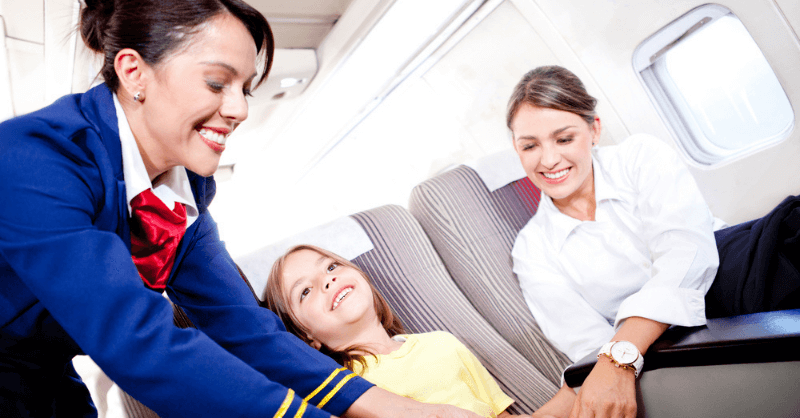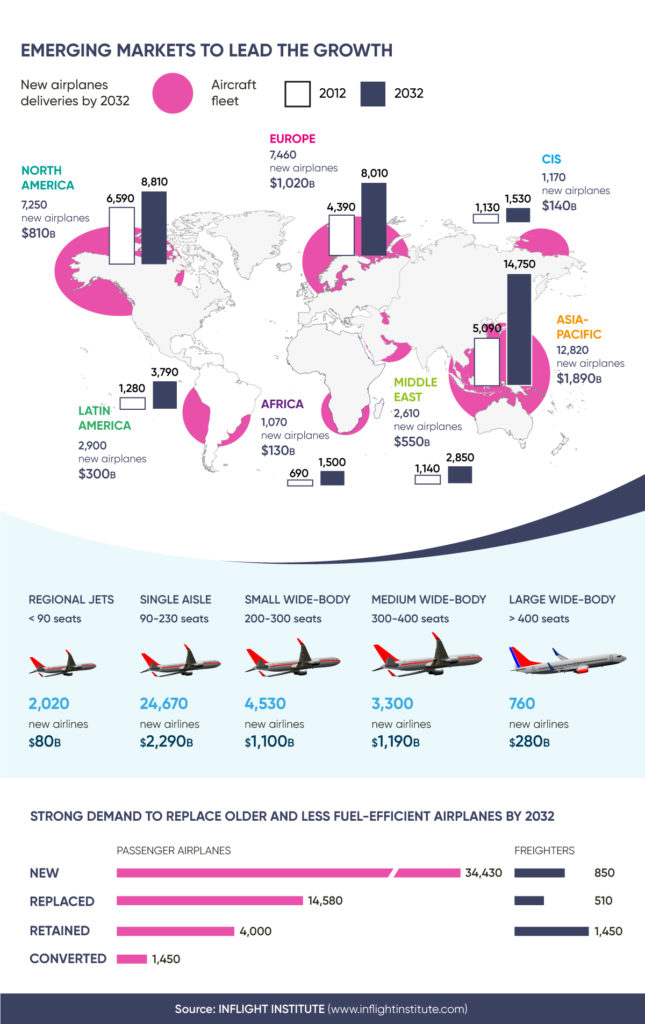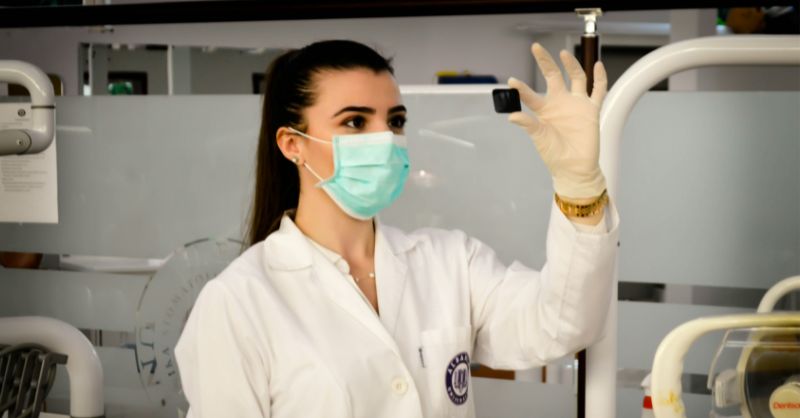Have you ever dreamed of a career in the air industry? What do you think of those delightful people who serve you on air? Cabin crews are role models of customer service. As a cabin crew, you are responsible for making the flying experience enjoyable and secured for the passengers on an aircraft. In this small piece on career guidelines for future cabin crews, we’ll know how to become a cabin crew (an air hostess or steward). Also, we’ll explore the career path and job opportunities in this challenging profession.
A touching promotional video by British Airlines
Table of Contents
How to get a job with the airlines?
The exciting lifestyle, travelling opportunities, access to different cultures make a job in the airlines highly demanding. There are a few steps to get started:
-
Regularly check the jobs vacancies posted by different airlines. Fortunately, there are dedicated job sites for the aviation industry. You can try Aviation Jobsearch, Flightglobal Jobs, CabinCrew.com,Cabin Crew Wings Job Board.
-
Pay attention to your fitness and language skills. The competition in the industry asks for a little extra. Bear in the mind that the long hours would require physical fitness.
- Take a short online course to familiarize with the aspects of the job. It will help you to get an overall view of the job requirements
-
Get into a practical 2-day cabin crew course once you have a good idea about the career path and clear concept of the job requirements (both physical and psychological).
- Take a sneak peek into the lives of cabin crews who already took the challenge and gained experience. Read the blogs and the amazing stories of cabin crews who get over the line and experience new things every single day.
How do cabin crews save our day?
For my experience of flying a few times, I realized how tolerant and diligent cabin crews are. Not very long ago, I was taking a flight early in the morning from Dubai International Airport. As I boarded the plane with my wife and small kid, I realized the flight was jam-packed. There was hardly any space for storing our hand baggage.
The cabin crews gently talked to the passengers, assured them going over the language barriers and kept them calm. The flight was 2 hours late as bad weather lingered in our destination.
It was an overwhelmingly delayed flight, and the passengers from different parts of the world were fidgeting. The amazing cabin crews of the flight saved our day, ensuring the comfort and safety of all passengers during the long flight.
The duties and responsibilities of a cabin crew
In simple terms, you need to serve refreshments and meals, distribute gifts and blankets as a cabin crew. These are, however, the visible components of the job. The real answer to ‘How do I become a cabin crew?’ lies in your ability to deal with emergency situations and security breaches.
As a cabin crew, you have to make sure that all the emergency equipment is functional before the aircraft takes off. Also, the supplies and stocks are your responsibility. Finally, you’ll help your passengers board the plane safely in a disciplined manner. Now, it’s time to demonstrate the safety procedures and equipment for preparing your passengers from possible hazards on board.
The major duties and responsibilities of cabin crews include quite a few things. Here is a list for your convenience:
- Be professional, courteous and punctual
- Attend pre-flight briefing that includes information about the flight and passengers
- Carrying out pre-flight duties including security checks
- Welcome the passengers on board and helping them find their seats
- Providing information on safety procedures
- Making sure that the seat belts and galleys are secure as the plane begins to take-off
-
Serving meals and refreshments according to the dietary requirements of the passengers
- Make announcements on behalf of the pilot (if required)
- Dealing with passengers complaints and queries
- Provide first aid in case of a medical emergency
- Reassuring the passengers in case of weather turbulence
- Doing the required paperwork and preparing a flight report
Cabin crew qualifications
You don’t need a degree or Higher National Degree (HND) to become a cabin crew. Airlines would expect you to have a strong secondary education with Maths and English. Again, some airlines may ask for a minimum of grade C in those subjects.
Nonetheless, a foundation degree or HND in hospitality management, languages, travel or tourism management would prove helpful to exhibit your motivation and engagement with the career of a cabin crew.
As I mentioned before, your ability to speak an extra language will give you the opportunity to help people with language barriers. Imagine, you can speak British sign language and help out a person with a communication disability.
Necessary vocational Cabin crew qualifications in the form of NVQs and BTECs) are also available from different awarding bodies at different levels of the job. To name a few awarding bodies, you can try City & Guilds, Pearson, Northern Council for Further Education (NCFE).
Thinking of getting a taste of the job? Fortunately, there are one and two-day courses that allow you to experience what the life of a cabin crew is like. You can try providers such as Cabin Crew Wings for a starter course.
Doing an online course, you can demonstrate your passion for the career. However, the competition for the challenging job is intense. Different airlines have different lists of requirements. Here is a list of some common requirements:
- Minimum age of 18 (21, in some cases) as you’ll server alcohol on board.
- Ability to swim 25 metres without assistance demonstrating a good standard of health and fitness.
- Minimum height in proportion to your weight. It differs from airline to airline.
- Good eyesight and hearing conditions. However, glasses or contact lenses are fine.
- A valid passport that allows unrestricted travel worldwide.
- Disclosure and Barring Service (DBS) check.
Cabin crew salary
Depending on your experience, you are looking at a figure of £12,000 to £18,000 a year as a base pay. After a few years in the industry, your base pay will reach up to £20,000.
There are other benefits that add to the salary of a cabin crew. Adding an hourly flight rate, performance bonus and in-flight commission on sales, your earnings can reach around £28,000 per year.
If you speak additional languages, your airlines are very likely to offer you extra pay on your base salary. Also, most of the companies offer payments for overnight shifts away from home. Additionally, you will get exclusive discounts and opportunities for traveling with family members.
What does it take to become a cabin crew?
Airlines largely recruit cabin crews for seasonal and chartered flights. You should be able to work flexible and unsocial hours. It means that you might work early morning, through the night, on public holidays and at weekends. You need certain skills for the job. We compiled a list of essential skills you require for the job:
- Very good communication skills
- Excellent customer service
- Team spirit
- Discretion in matters of VIPs
- Ability to handle pressure and remain calm in emergencies
- Sales skills
- Good numeracy skills
- Potential for providing quick and efficient service
Your employer might not want a strong academic background from you. However, they want to judge your skills and relevant experience for the skills required for the job.
Learn more:
Air Cabin Crew: Entry Requirements, Recruitment Process and Career Guide
Possible Career paths for Cabin Crew
Airlines provide their own structured cabin crew training to the new recruits and prepare them for real-life challenges. The initial training typically goes for four-seven weeks.
You will receive training on safety procedures, security factors, first aid, safety equipment.
Your training will be tailored to the position you are hired for. It varies according to the experience of the cabin crews and the type of aircraft they are going to work for. Usually, your training will include written and practical tests on areas such as:
- customs and immigration regulations
- passenger care and customer relations
- cultural awareness
- currency exchange
- food preparation and service
- assertiveness
- personal grooming
- product knowledge
- galley management
After the cabin crew training, you will be in a probationary period. Your trainers and senior crews will monitor your performance. On your performance and progress during the probationary period, you will become a full member.
Moving to the next level
Promotions in the job depends on your experience and performance. You can progress to become a purser or chief purser.
As a purser, you’ll have the same responsibilities as a cabin crew. In addition, you will be given management duties of certain cabins. However, you need to gain 2-5 years of experience to become a purser.
Being a purser, you are eyeing at the position of senior cabin crew. The position is also known as cabin supervisor or cabin service director. Now, you are moving to a supervisor’s position and you have to monitor all the cabin crews and pursers. You will be involved in training and supervising new recruits.
There are other options too. You can opt in for ground-based operations such as training and recruitment of cabin crews, passenger services and crew controlling. With larger airlines, there is scope for shifting to other departments i.e. marketing, sales, HR.
In this article, we explained how to become a cabin crew from scratch. It’s very important to understand that the industry is skill-based. Your strong education background adds to your CV. Nonetheless, you must have certain personal and professional attributes. Think out of the box and match your skills to the requirements. Because of the high competition, it is crucial to understand the requirements of the job. Learn more about the challenging aspects of the job from our accredited training on how to become a cabin crew. With the initial knowledge of the industry, you are ready to fly. The future of the industry is bright according to the latest projection. Well, people are planning to settle on the moon! What else should we expect?
Recent posts
- Why is Child Development so Important in Early Years
- Line Management: How to be a Good Line Manager?
- How Long Should a Health Sector Career Take?
- The Importance of BSL in Everyday Life
- Why Corporate eLearning is Essential for Organisational Training
- Take your Business Expertise to the next level: Get your MBA
- Read to Lead: Books That Cultivate Effective Leadership Skills
- Crafting an Effective Home Schooling Curriculum: A Comprehensive Guide
- Learn How to Write a Term Paper | From Start to Finish
- Student Entrepreneurship: Creating and Selling Custom T-Shirts as a Learning Experience







 January 09, 2024
January 09, 2024









